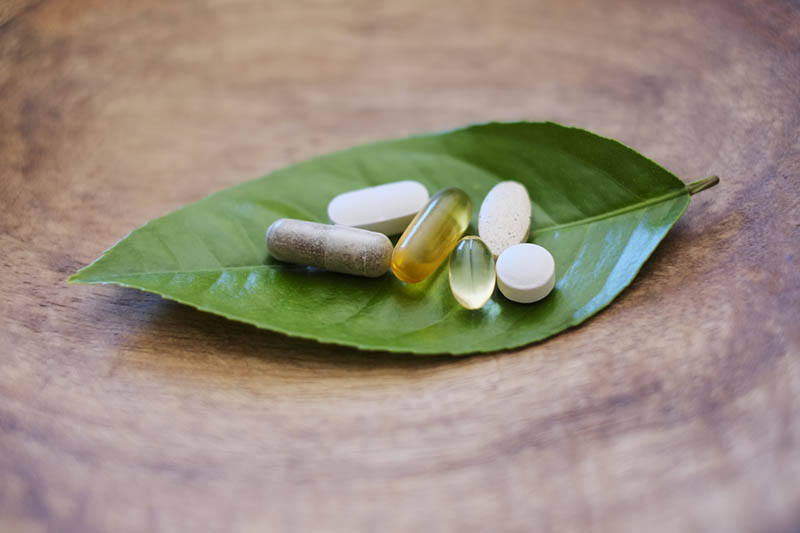
We all know how important it is to take a plentiful supply of vitamins each day. Not only are vitamins and supplements essential for our entire body’s well-being, but they can be incredibly helpful in keeping teeth and gums healthy.
Ideally, your vitamins and supplements should be coming from the foods that you eat. Healthy food sources are the easiest for us to absorb and have the most impact on our health. However, taking a vitamin supplement, like a multivitamin, each day can help to fill in the gaps that you might be missing.
Here are some of the best supplements and vitamins to take that will boost your dental health and well-being:
Calcium
Calcium is well known for bone health, so it’s only obvious that it would be essential for dental health as well. When not enough calcium is consumed, your body will compensate by removing this mineral from teeth and bones. This can result in tooth decay because teeth aren’t as strong and resilient as they once were. Some of the most common foods that are packed with calcium include leafy greens, almonds, sardines, oysters, and most dairy products like milk and yogurt.
Vitamin A
Most people think of Vitamin A as contributing to good eyesight, but it can be just as important to your dental health. Vitamin A is responsible for keeping salivary glands active and flowing, which can help to prevent tooth decay. Saliva works by washing away bacteria and plaque inside of the mouth. Dry mouth can contribute to both gum disease as well as tooth decay, so preventing dry mouth from occurring in the first place is your best line of defense. Some of the most common food sources that contain Vitamin A include sweet potatoes and yams, peppers, kale, egg yolks, and fish.
B Vitamins
Two of the essential B vitamins that help with dental health are niacin (B-3) and riboflavin (B-2). Both vitamins help to keep sores and oral inflammation at bay, which can help in preventing and treating canker sores, inflamed gums as well as injuries inside of the mouth. Healthy gums and soft tissues found in the mouth are all part of maintaining a full, healthy smile. Some of the most common food sources for niacin and riboflavin include almonds, spinach, legumes, red meats, and dairy products.
Vitamin C
Vitamin C is essential in keeping the connective tissues in your mouth strong and healthy. Without enough Vitamin C, your teeth can become loose, weak, and you’re more prone to developing gingivitis and gum disease. In fact, one of the most common ailments in history, known as scurvy, was a result of Vitamin C deficiency. Since one of the side effects of scurvy was tooth loss, it’s apparent that having enough of this vitamin in your diet is essential for oral health. Some of the more common sources of Vitamin C include citrus fruits like lemons and limes, peppers, oranges, kale, berries, and sweet potatoes.
Vitamin D
Without enough Vitamin D, your body is not able to absorb calcium as efficiently. Even if you’re taking an excellent calcium supplement or are eating foods packed with this nutrient, you may not be absorbing nearly as much as you want without the help of Vitamin D. Unfortunately, Vitamin D deficiency is one of the most common problems in the modern world, with a good majority of people being deficient in some way. Your best sources of Vitamin D include natural sunlight and enriched dairy products like milk and yogurt. Even sitting in the sun for 15 minutes a day is enough to soak up an adequate amount of Vitamin D.
Vitamin E
There have been links to Vitamin E and the prevention of gum disease. This is mostly due to Vitamin E’s anti-inflammatory properties. The vitamin can help in reducing inflammation in the mouth as well as helping to prevent swelling and oxidation. The most common sources to obtain Vitamin E include wheat germ, vegetable oil, seeds and nuts, fish, and avocados.
Iron
Iron is essential in keeping red blood cell counts at a healthy level. Without enough iron, your body becomes iron deficient, which can cause a myriad of side effects like dizziness, extreme fatigue, pale skin, weakness, and persistent headaches. Unfortunately, iron deficiency can also have an impact on your dental health. Without enough iron in your diet, your body won’t be able to fight off infections and inflammation as it should. This can cause issues with inflammation, gingivitis, and eventually, gum disease despite your best efforts to treat the condition. The best source of iron is in red meats, but you can also obtain it through bread, cereals, and eggs.
Potassium
Potassium is essential for healthy bones as it helps to prevent demineralization of tooth structure. This helps in strengthening your teeth and preventing tooth decay. Potassium is also important in blood clotting, which is crucial when recovering from oral surgery or if your gums bleed when you brush or floss your teeth. Healthy potassium sources include bananas, avocados, leafy greens, milk, and cheese.
Phosphorus
Studies have found that if calcium is to be absorbed fully, it needs to be paired with phosphorus. By pairing phosphorus with the calcium that you’re taking, you’re able to improve dental health by strengthening the healthy tooth structure. Some of the most common sources of phosphorus include milk, cheese, yogurt, and red meats.
Eating a diet rich in fruits and vegetables as well as healthy, lean meats is essential to your overall health and well-being. Also, your oral health is directly connected to your body’s health. Fortunately, a healthy diet can also contribute to a brighter, fuller smile and fewer dental problems. If you are unable to get all of these foods into your diet each day, a high-quality multivitamin can help fill in any gaps that you might be missing. You may even find that emphasizing the number of vitamins and supplements you take each day benefits more than your smile.

